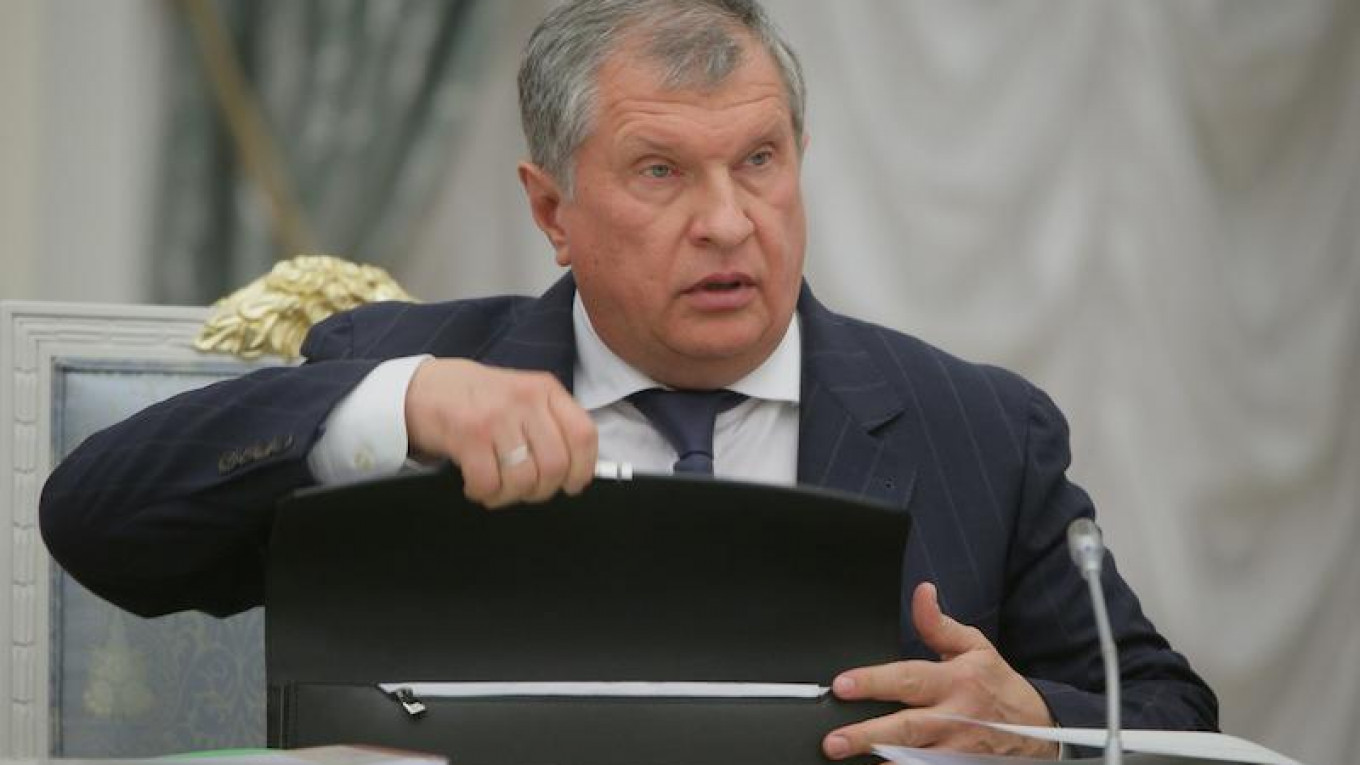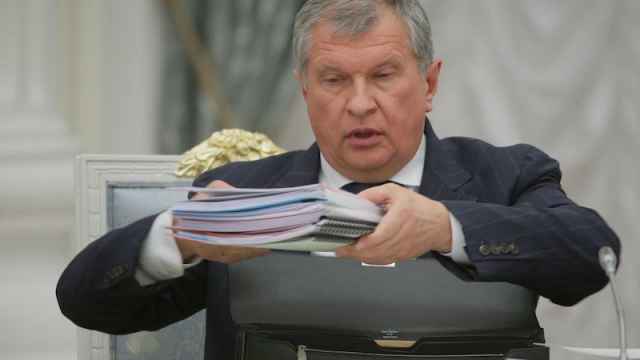According to some Russian media, Igor Sechin has it all: beautiful wife, mansion,
86-meter-long yacht.
What they didn’t realise was just how much the tycoon would dislike reading about it. The head of Russia’s largest state-controlled oil company Rosneft and one of Putin’s closest associates, Sechin has taken to suing a number of independent news outlets for supposedly breaching his privacy.
On Monday, a Moscow district court ruled that the investigative magazine Novaya Gazeta should retract an article linking Sechin to an exclusive Dutch-made yacht. The magazine had used Instagram posts and geotagging to show the “St. Princess Olga” luxury vessel was being used by his wife, Olga.
The ruling came less than a month after a court ordered the retraction of another article, this time in the Vedomosti business daily, which reported allegations that Sechin was building a lavish mansion near Moscow. In both cases, Sechin’s legal team sued, and won, for libel, without having to prove the published information was false. “They didn’t contradict any of the facts,” says Sergei Sokolov, Novaya Gazeta’s deputy editor. “And if they didn’t contradict it, it means it’s true.”
Novaya Gazeta claims that, as head of a state company, Sechin’s lifestyle is of public interest. His defense argues he is not a public figure and the reports breach his privacy. The court sided with Sechin. In the case of Vedomosti, the court even ordered the “destruction” of the entire issue from the paper’s physical archive, saying the article had been written “for the sake of the public’s idle interest.”
“Of course we write to capture the public’s interest,” says Tatyana Lysova, Vedomosti’s editor-in-chief. “We’re a newspaper!”
Both Vedomosti and Novaya Gazeta will appeal the rulings, they told The Moscow Times.
Last month, the lawsuits took on an unprecedented turn, after Rosneft demanded no less than 3.1 billion rubles ($49 million) in compensation from the media outlet RBC and several of its journalists. RBC had written an article claiming Sechin asked the Kremlin to obstruct its stakeholder, and competitor, British Petroleum. Sechin’s team sued for “reputational damages.”
If the court rules in his favor, it would mean bankruptcy for
the publication, says Yelizaveta Osetinskaya, RBC’s former managing
editor. Osetinskaya resigned after several of her colleagues
at RBC were sacked shortly after prominent investigations
into Putin’s inner circle. She argues that since BP continues
to be a shareholder in Rosneft, the claim does not stand up to
scrutiny. The lawsuit seems to be designed to “punish RBC’s
independent editorial policy and send a clear signal to others," she told The Moscow Times in written comments from the United States, where she now lives.
Russia’s independent journalism scene has long been subject to pressure. In the past decade, journalists have been harassed or even killed. Critical media outlets have often seen staff reshuffles or been forced to sell to more Kremlin-friendly buyers. Sechin’s suing frenzy might be interpreted as falling into a new strategy of using the courts to mum investigative reports.
Immunity from scrutiny, previously reserved for Putin and his relatives, also seems to be extending to a wider circle of top Russian officials. “We are moving toward a situation of untouchable claimants,” says media law expert Fyodor Kravchenko. Journalists will now think twice before writing about Sechin or Rosneft. “No one wants to take part in that kind of lottery,” he says.
Ironically, Sechin’s attempts to wipe the news slate clean has backfired, in a classic case of the Streisand effect whereby a hardhanded attempt to push certain information out of view has the opposite effect. As Russian outlets have covered the court cases, they have reiterated the initial claims and in many cases provided links to the original articles online.
Readership of the offending Vedomosti article increased 42 percent after Sechin’s claim, statistics seen by The Moscow Times showed. Traffic to Novaya Gazeta also increased, says editor Sokolov. “It was only an incentive for everyone who hadn’t read the article, to do so,” he says.
Type in the oil tycoon’s surname in Google and the search engine
prompts: Wife. Yacht. Salary. Sechin can sue but the public’s
“idle” interest in those three topics is unlikely to go away.
A Message from The Moscow Times:
Dear readers,
We are facing unprecedented challenges. Russia's Prosecutor General's Office has designated The Moscow Times as an "undesirable" organization, criminalizing our work and putting our staff at risk of prosecution. This follows our earlier unjust labeling as a "foreign agent."
These actions are direct attempts to silence independent journalism in Russia. The authorities claim our work "discredits the decisions of the Russian leadership." We see things differently: we strive to provide accurate, unbiased reporting on Russia.
We, the journalists of The Moscow Times, refuse to be silenced. But to continue our work, we need your help.
Your support, no matter how small, makes a world of difference. If you can, please support us monthly starting from just $2. It's quick to set up, and every contribution makes a significant impact.
By supporting The Moscow Times, you're defending open, independent journalism in the face of repression. Thank you for standing with us.
Remind me later.






